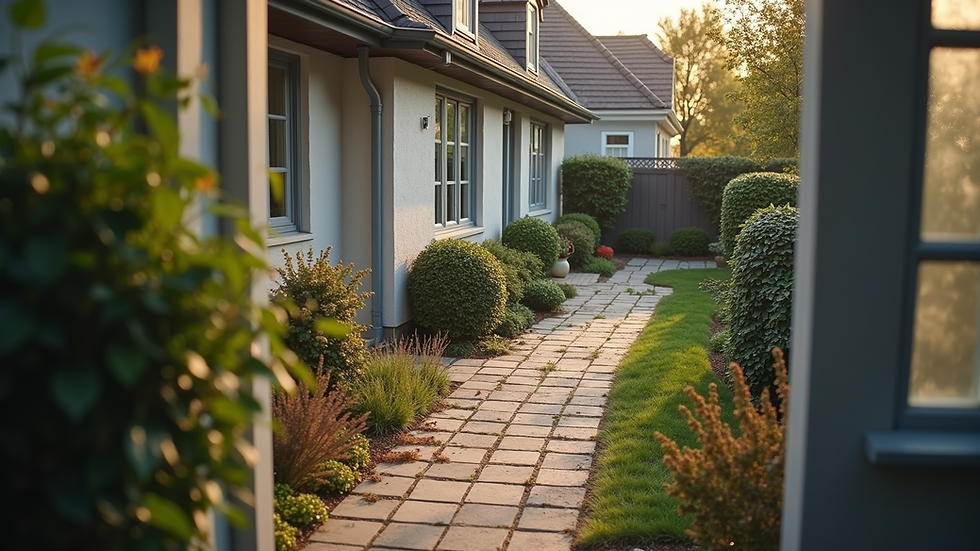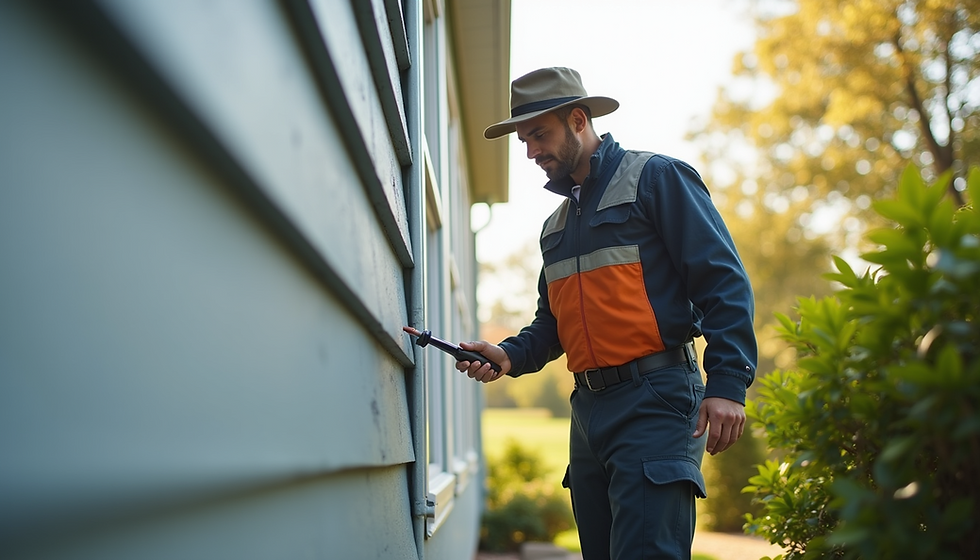Why Regular Pest Maintenance is Essential for Your Home
- Shahid AR
- Jul 17
- 4 min read
Pests can be a nightmare for homeowners, causing damage and health issues. Whether it's ants, rodents, or termites, regular pest maintenance is crucial for protecting your home and ensuring a healthy environment. This blog post explores the importance of pest maintenance in saving time, money, and stress.
Understanding Pest Maintenance
Pest maintenance involves proactive measures to prevent infestations, such as regular inspections and treatments. It's more cost-effective to prevent pests than to address an existing infestation. Regular maintenance protects your home and promotes better health and hygiene for your family.

In a study conducted by the National Pest Management Association, it was found that 14% of American homes need to be treated for pests annually. Ignoring this statistic could lead to increased pest activity and the potential for serious damage and health issues in your home.
The Benefits of Regular Pest Maintenance
Protecting Your Home's Value
One of the most compelling reasons for regular pest maintenance is the protection of your home’s value. Pest infestations can lead to significant damage. For example, termites can compromise the structural integrity of your home, while rodents can chew through electrical wires, increasing the risk of fire. Maintaining your property not only ensures that you avoid costly repairs but also protects your investment.

If you plan to sell your home in the future, having a well-maintained property devoid of pest issues can enhance your curb appeal and make it more attractive to potential buyers. A home that's been regularly maintained is far more appealing than one that has a lengthy history of pest problems.
Safeguarding Health
Pests can be more than just a nuisance; they can pose serious health risks to you and your family. Rodents can carry diseases like hantavirus and hantavirus pulmonary syndrome. Cockroaches are known to trigger asthma and allergies, and pests like mosquitoes can transmit West Nile virus and Zika virus.
Regular pest maintenance helps minimize the risk of these health hazards. Scheduled inspections and treatments will keep harmful pests at bay, ensuring that your home is a safe haven for your loved ones.
Reducing Stress and Anxiety
Dealing with a pest infestation can be incredibly stressful. The uncertainty of not knowing where the pests are coming from or how extensive the problem is can lead to anxiety. Regular pest maintenance alleviates this concern; knowing that your home is being monitored and treated provides peace of mind.
By seeking help before pests become a significant issue, you reduce the likelihood of emergency pest control, which can often be more stressful and expensive.
What is the Most Effective Form of Pest Control?
When it comes to effective pest control, different methods may be employed depending on the type of pest and the extent of the infestation. Integrated Pest Management (IPM) is one of the most effective approaches. This strategy combines biological, cultural, physical, and chemical tools to manage pests in an environmentally sustainable manner.
For instance, before applying pesticides, an inspection is conducted to identify pest infestations and determine the cause. This careful assessment allows homeowners to tailor the appropriate solutions for their specific situations.

Regular maintenance allows you to utilize IPM strategies effectively, ensuring that your home is treated in a safe and sustainable way.
Common Pests to Watch Out For
It's vital to understand which pests are prevalent in your area and how to recognize early signs of an infestation. Some common pests to look out for include:
Termites: Often referred to as "silent destroyers," termites can damage wooden structures without obvious signs. Look for signs of mud tubes or discarded wings around your home.
Rodents: Mice and rats can enter your home through small cracks. Look for droppings or nesting materials in hidden areas.
Bedbugs: These pesky insects are notoriously difficult to eradicate. Small, reddish-brown bugs hiding in your mattress seams could indicate an infestation.
Ants: The mere sight of a few ants in your kitchen could mean there's an entire colony nearby. Check for trails of ants leading into your home.
Regular inspections can help catch these pests before they become a significant problem.
Actionable Recommendations for Effective Pest Maintenance
Schedule Regular Inspections: Arrange for pest professionals to conduct inspections at least twice a year. This ensures that any potential problems are caught early on.
Seal Entry Points: Inspect your home for cracks and gaps around doors, windows, and the foundation. Seal these with caulk or weather stripping to deter pests from entering your home.
Maintain Cleanliness: Keep your home clean by regularly vacuuming, wiping down surfaces, and clearing clutter. Pests are attracted to food residues and places to hide.
Dispose of Waste Properly: Ensure that garbage bins are securely closed and regularly emptied to eliminate potential food sources for pests.
Educate Yourself: Learn about the common pests in your area and the early signs of an infestation. Awareness is crucial in taking prompt action.
Embrace the Benefits of Regular Pest Maintenance
In summary, regular pest maintenance is not just about getting rid of pests; it is an essential part of homeownership. The risks of ignoring pest problems can lead to health issues, severe damage, and increased costs. By investing in regular inspections and maintaining a proactive approach to pest management, you can ensure your home remains safe and comfortable.
Embracing regular pest maintenance offers numerous benefits. Consider it as an essential investment rather than an expense. Protect your home, safeguard your health, and enjoy lasting peace of mind.







Comments